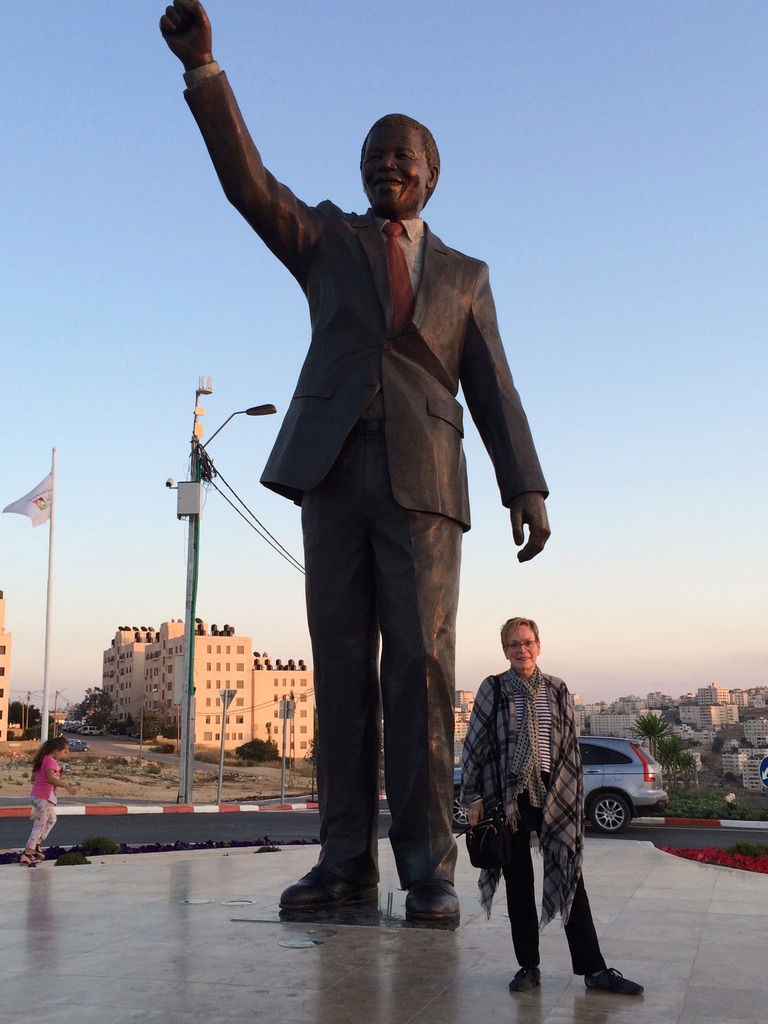ABOUT CATHY
In 1969, I moved to Beirut with my Lebanese husband and two small children. Until 1975, we lived peacefully in a lovely rooftop apartment overlooking the city. I had mastered French and was learning Arabic; my children were already fluent in both. In those six years, I found myself applauding the young American who had accomplished a great many things. At the same time, I began to feel great trepidation. Even if I had wanted to believe that something would be done in time to stop a civil war, I could no longer ignore the fact that my beloved city—and quite possibly my entire life—was slowly coming undone.
When the war began in April 1975, my world was irrevocably changed. No one who lives eight years under falling bombs is ever the same again. Those experiences have shaped not only my life, but my writing, which I initially turned to as therapy to overcome the trauma of war. Now, as I reflect back on those fourteen years in Lebanon, and thirty plus years of bi-annual visits, I realize it was my willingness to become identifiably Lebanese that has influenced my writing and activism. I’m privileged to walk in two lives and know two cultures.

After the publication of A Beirut Heart, I understood how putting a powerful story on paper could inform an audience about the hideous nature of war. I became a better student of the Middle East, attempting to more thoroughly understand the complexities of the region, and because I knew the culture and some of the regional politics, I had a unique platform from which to speak. I had witnessed Israel’s invasion of Lebanon in 1982, its carpet bombing of Beirut. My family and I had fled our apartment eleven times during the war. I had seen people gunned down—killed by snipers. I had laid awake nights listening to gun and mortar fire, cowered in our apartment, my body covering my children, to protect them from incoming rockets.
I took my first trip to Israel/Palestine in 2002. This experience led me to write Israeli and Palestinian Voices. The book opened opportunities, which lead to fifteen years of NGO work, primarily in Israel/Palestine. I co-led five additional trips to Israel where I met with Israeli settlers, confronted Israeli soldiers trying to arrest peace activists and witnessed Israeli-ordered house demolitions of Palestinian-owned homes. I spent two weeks documenting life in Gaza. I’ve traveled to the Golan Heights, the Negev to speak with Bedouins, to Hebron’s South Hills to personally witness Israeli settler violence. My writing on the region reflects my first-hand experiences. If I write extensively about the Shatilla refugee camp in Beirut, as I do in Damascus Street, it is because I’ve been there multiple times and know people who work there. In The Syrian, one of my characters stays in a particular hotel in Damascus. I visited that hotel, walked the alleyways of Damascus to not only familiarize myself with my proposed storyline, but to give my readers as authentic an experience as possible.
After the 2006 war between Israel and Hezbollah in South Lebanon, I interviewed survivors, documented the destruction and spoke with people who had lived through Israel’s twenty-two-year occupation. I cataloged my interviewees, eventually using some of them in my stories.
What I do not know before beginning a project, I research thoroughly. Before I traveled to Israel/Palestine in 2002, I spent a year reading everything I could find on the conflict. In my latest book of fiction, I spent countless hours dissecting news sources and unmasking the deception laid upon us about regime change in Syria. More than ever, I’ve come to realize my job as a writer is to inform.
William Casey, head of the CIA from 1982-1987 wrote: “We’ll know that our disinformation program is complete when everything the American public believes is false.”
my AWARDS
Cathy Sultan is an award-winning author of three nonfiction books: A Beirut Heart: One Woman’s War; Israeli and Palestinian Voices: A Dialogue with Both Sides; and Tragedy in South Lebanon. A Beirut Heart was translated into Chinese in 2013. The Syrian, a political thriller, was her first work of fiction, followed by Damascus Street. Her third in the Syria quartet is due to be published in the spring of 2021. Sultan is also a peace activist. She spent several years at the National Peace Foundation, then served on the Board of Directors of Interfaith Peace Builders (now Eyewitness Palestine), an NGO based in Washington, D.C. She took her first trip to Israel/Palestine in March 2002 and subsequently co-lead five delegations to Israel/Palestine on behalf of IFPB, including one to Gaza in 2012.
Sultan won USA’s Best Book of the Year Award in 2006 for her Autobiography A Beirut Heart; USA’s Best Book of the Year Award in 2006 the category of History/Politics for Israeli and Palestinian Voices; 2006 Midwest Book Awards-Honorable Mention in the Category of Political Science for Israeli and Palestinian Voices. Tragedy in South Lebanon was nominated for Best Book of the Year in the Category of Political Science in 2008 and Damascus Street was honored as a 2019 Montaigne Medal Finalist. In 2022, An Ambassador to Syria won the 2022 Independent Press Awards under Historical Fiction. Each year, the Eric Hoffer Award presents the Montaigne Medal to the most thought-provoking books. These are books that either illuminate, progress, or redirect thought. The Montaigne Medal is given in honor of the great French philosopher Michel de Montaigne, who influenced people such as William Shakespeare, René Descartes, Ralph Waldo Emerson, Friedrich Nietzsche, Jean-Jacques Rousseau and Eric Hofer. Damascus Street was also a finalist for the Eric Hoffer Award for its salient writing.